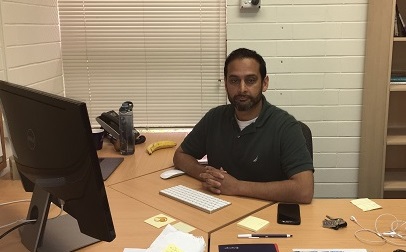Australian learners are super diverse (Hattam and Rigney, 2018). And learner diversity is super complex (Memon and Chown, 2018). Being culturally and religiously responsive to learner diversity is a standard of good teaching practice (AITSL, 2011) and equitable practice is a national education priority (Melbourne Declaration, 2008).
But what does being religiously responsive mean and look like in practice?
Since the 2000s Muslim learners in Australia have been found to be the subject of scrutiny and judgement on account of broader social ‘othering’ (Preger and Kostogriz, 2014) facing complex challenges in relation to bullying, bigotry, identity, belonging, self-worth, and exclusion (Briskman et al. 2017; Mansouri and Trembath, 2005; Pe-Pua et al., 2010). At the same time, Australian Muslim learners are arguably extensively internally diverse : (1) culturally and (2) linguistically representing many of the 49 Muslim-majority countries in addition to those from muslim minority contexts (Pew, 2011); (3) theologically split between two major sects but with many further subgroups and orientations, and (4) generationally with various waves of migration dating as far back as the 1700s and as recent as the multiple waves of over the past three decades (Saeed, 2011). Being religiously responsive to Australian Muslim learners is further complicated because of the current global socio-political climate as this intersects with and also complex because of the vast internal diversity among Muslim peoples.
The complexity of diversity raises important questions for educators such as:
(1) How are educators expected to know their learners and be responsive to learning strengths and needs in relation to learner diversity?
(2) To what extent do educators need to understand varied practices and perspectives of a faith to be responsive?
(3) What role do educators play when learner perspectives of faith differ from beliefs held about faith at home/community?
(4) Is it practical to expect educators to be responsive to all aspects of learner diversity?
This public lecture will use Australian Muslim learners as a case example of the complexities of being culturally and religiously responsive. Attendees can anticipate to leave with ways of thinking through the super complexity of Australia’s super diversity and practical school-based approaches of enacting religious responsiveness.
Presenter Bio
 |
Dr. Nadeem Memon is a Senior Research Fellow in the Centre for Islamic Thought and Education (CITE) in the School of Education at UniSA. His research focuses on teacher education with particular emphasis on Islamic Pedagogy, comparative faith-based schooling, philosophy of religious education, and culturally relevant and responsive teaching. He is the co-editor of two books: Philosophies of Islamic Education: Historical |
Perspectives and Emerging Discourses (Routledge, 2016) and Discipline, Devotion, and Dissent: Jewish, Catholic, and Islamic Schooling in Canada (Wilfrid Laurier University Press, 2013). Please click here for more of Dr Memon's bio.


